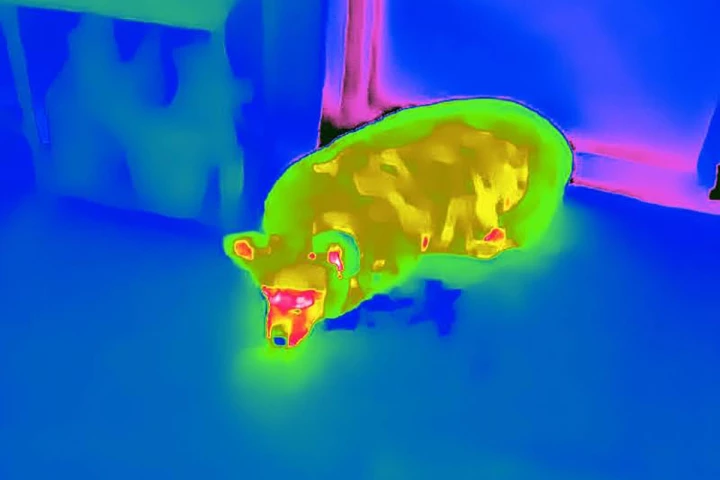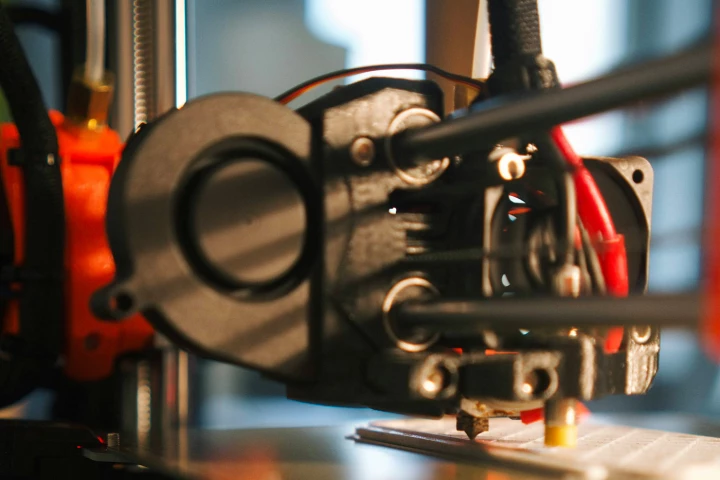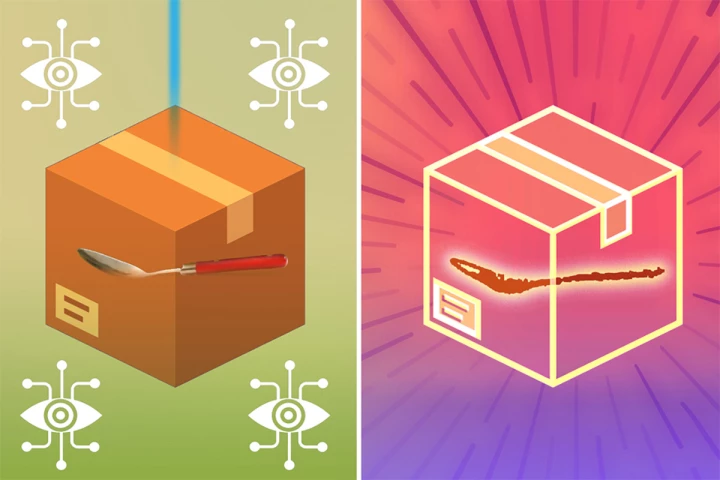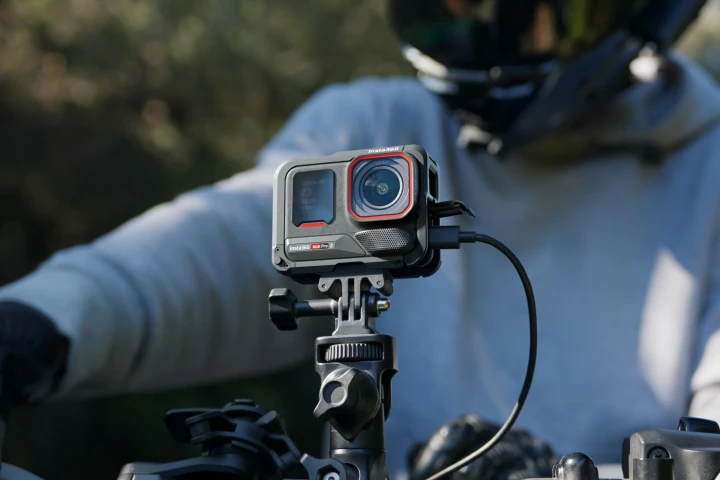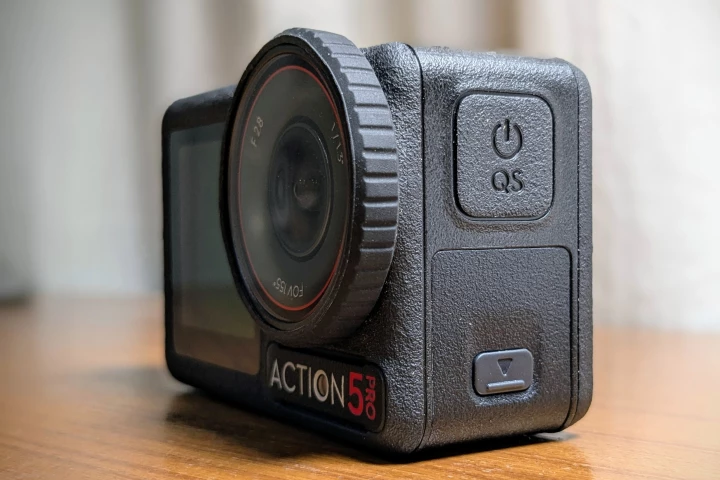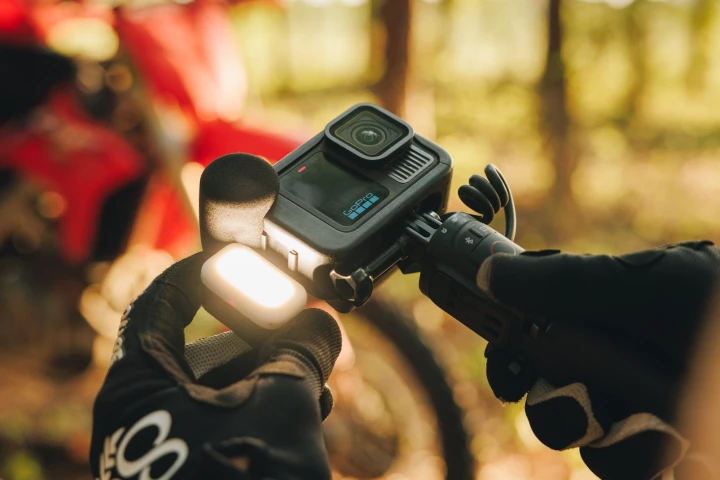Electronics
From electric lighting to instantaneous global communications, the evolution of electronics is far from over – keep up to date with the latest developments here.
Top News
-
From a handheld soldering gun to the 'playbird mansion' and, of course, the marvel of a smartphone microscope, there are some gadgets that we come across that we instantly want – and this wireless ultrasonic cutter is definitely another.
-
Compact electronics have become the norm, but there's still room for surprise. The Thermal Master P2 certainly fits in that category. It's one of the smallest thermal imaging cameras on the market, but it packs a lot of functions into its compact volume.
-
Researchers at MIT have unexpectedly stumbled upon a way to 3D print active electronics – meaning transistors and components for controlling electrical signals – without the use of semiconductors or even special fabrication technology.
Load More
Latest News
-
July 04, 2025 | Abhimanyu GhoshalResearchers have developed a way to use high-frequency electromagnetic waves to visualize objects that are hidden from view – such as a tool in a pile of junk or a vase in a cardboard box – with much greater accuracy than before.
-
April 22, 2025 | Utkarsh SoodInsta360 flipped the switch on action cams when it first released the first 360-degree One RS in 2022. Now, the company has just upgraded its flagship line with the all-new X5. But for a camera that was already near-flawless, what could it have done more?
-
March 30, 2025 | Michael IrvingScientists have created a new type of display with the smallest pixels and highest pixel density ever. Individual pixels were shrunk to 90 nanometers – about the size of a virus – and a record 127,000 of them were crammed into every inch of a display
-
March 03, 2025 | Michael IrvingVR is incredibly immersive for sight and sound, touch can be done, and even smell is starting to appear. That just leaves one sense – and whether or not anyone actually wants to taste virtual worlds, a new device is now tackling that final frontier.
-
February 18, 2025 | David SzondyHunting and wildlife observation is like the start of the classic recipe for rabbit stew – first catch your rabbit or, at least, find it. The new Thermal Master T2 Max thermal scope makes that job a bit easier with its high resolution system. Let's take a look.
-
January 21, 2025 | Ben CoxworthThere are wireless computer mice, touchpads, TV remotes, and laser pointers … and then there's the Xring D13. It combines all of those tools in one wireless device, which could be yours for US$109.
-
October 25, 2024 | Utkarsh SoodThe Insta360 Ace Pro 2 is the latest action camera on the market. The successor to the Ace Pro gets quite a few features including Leica-engineered color profiles, a dedicated Pro imaging chip, 8K video quality, and most importantly, AI processing.
-
October 12, 2024 | Utkarsh SoodWhat do you want from an action cam? It should be rugged, reliable, and able to capture great video and audio. But that’s just the bare minimum for DJI and its all-new Action 5 Pro – a serious big hitter that might just displace GoPro from its throne.
-
September 06, 2024 | Utkarsh SoodWith interchangeable lenses, a magnetic mount, and a magnetic charger, GoPro Hero 13’s biggest upgrades are on the outside. But that’s not to say nothing's new on the inside; it gets a bigger battery with new power delivery and is priced at US$399.
-
August 26, 2024 | Ben CoxworthIf you want to concentrate on your writing, you probably shouldn't be using a computer that's connected to the distracting internet or that's always sending alerts. That's where the BYOK comes in, as it doesn't let you do anything other than write.
-
June 18, 2024 | Ben CoxworthWhile the Apple Vision Pro VR headset has a much-hyped resolution of 3,386 PPI (pixels per inch), a new technology more than doubles that figure. It was created by Los Angeles-based startup Q-Pixel, and it could revolutionize the world of video displays.
-
February 15, 2024 | Bridget BorgobelloSPIN challenges conventional notions of music creation by inviting users to collaborate with an AI language model called MusicGen. With its distinctive blend of a turntable and a drum machine, SPIN offers users a creative music composition tool.
-
January 05, 2024 | Ben CoxworthIf you're on a sightseeing tour in a bus, you really don't want to be looking away from the passing attractions to Google them on your smartphone. The AR Interactive Vehicle Display is intended to help, by showing relevant information on the vehicle's window glass.
-
December 05, 2023 | Michael IrvingDiamond is a promising material for data storage, and now scientists have demonstrated a new way to cram more data onto it, down to a single atom. The technique bypasses a physical limit by writing data to the same spots in different-colored light.
-
October 31, 2023 | Michael IrvingScientists have found that a “superatomic” material is the fastest and most efficient semiconductor ever. Taking advantage of a tortoise-and-hare mechanism, the new material can transport energy much faster than silicon.
Load More

